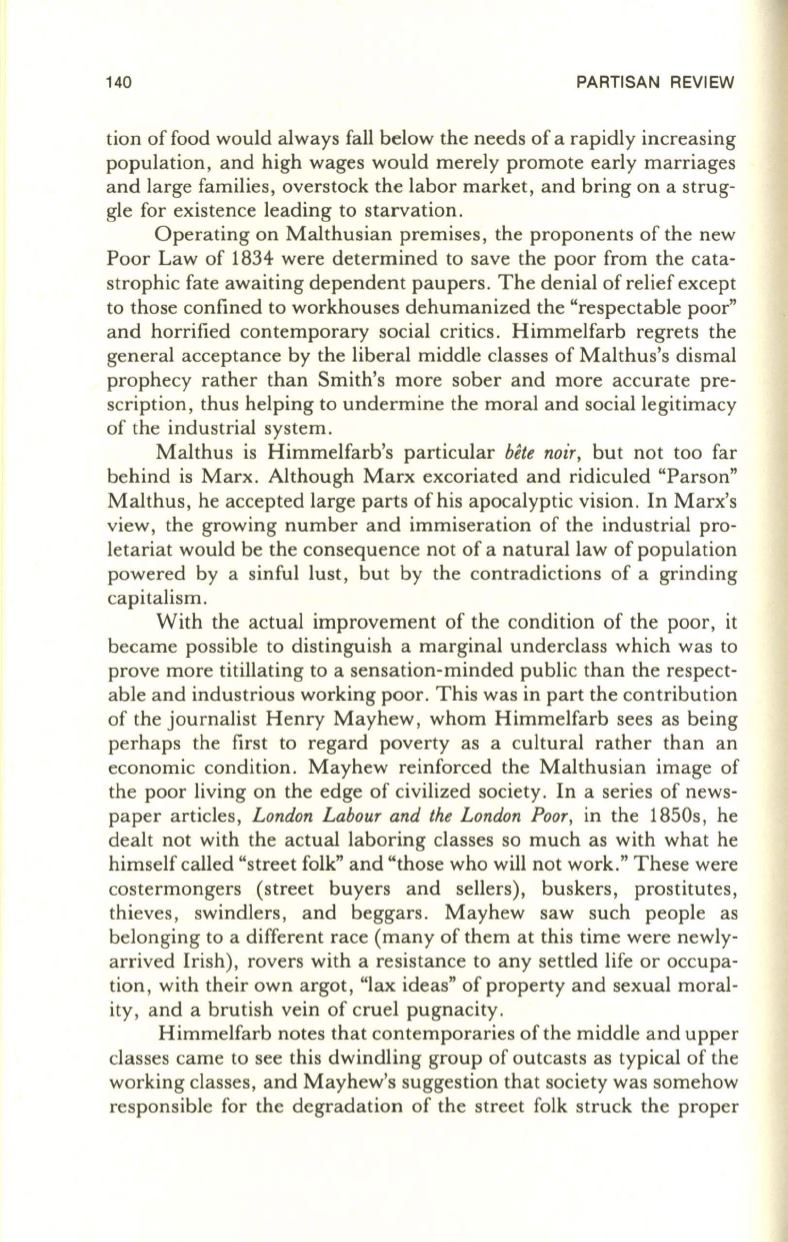
140
PARTISAN REVIEW
tion of food would always fall below the needs of a rapidly increasing
population, and high wages would merely promote early marriages
and large families, overstock the labor market, and bring on a strug–
gle for existence leading to starvation.
Operating on Malthusian premises, the proponents of the new
Poor Law of 1834 were determined to save the poor from the cata–
strophic fate awaiting dependent paupers. The denial of relief except
to those confined to workhouses dehumanized the "respectable poor"
and horrified contemporary social critics. Himmelfarb regrets the
general acceptance by the liberal middle classes of Malthus's dismal
prophecy rather than Smith's more sober and more accurate pre–
scription, thus helping to undermine the moral and social legitimacy
of the industrial system.
Malthus is Himmelfarb's particular
beee noir,
but not too far
behind is Marx. Although Marx excoriated and ridiculed "Parson"
Malthus, he accepted large parts of his apocalyptic vision.
In
Marx's
view, the growing number and immiseration of the industrial pro–
letariat would be the consequence not of a natural law of population
powered by a sinful lust, but by the contradictions of a grinding
capitalism.
With the actual improvement of the condition of the poor, it
became possible to distinguish a marginal underclass which was to
prove more titillating to a sensation-minded public than the respect–
able and industrious working poor. This was in part the contribution
of the journalist Henry Mayhew, whom Himmelfarb sees as being
perhaps the first to regard poverty as a cultural rather than an
economic condition. Mayhew reinforced the Malthusian image of
the poor living on the edge of civilized society.
In
a series of news–
paper articles,
London Labour and the London Poor,
in the 1850s, he
dealt not with the actual laboring classes so much as with what he
himself called "street folk" and "those who will not work." These were
costermongers (street buyers and sellers), buskers, prostitutes,
thieves, swindlers, and beggars. Mayhew saw such people as
belonging to a different race (many of them at this time were newly–
arrived Irish), rovers with a resistance to any settled life or occupa–
tion, with their own argot, "lax ideas" of property and sexual moral–
ity, and a brutish vein of cruel pugnacity.
Himmelfarb notes that contemporaries of the middle and upper
classes came to see this dwindling group of outcasts as typical of the
working classes, and Mayhew's suggestion that society was somehow
responsible for the degradation of the street folk struck the proper


